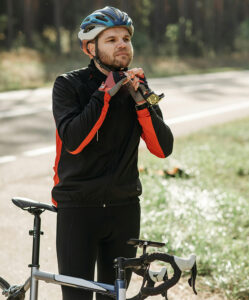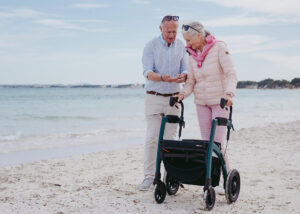 As summer approaches, the allure of outdoor activities becomes irresistible. From biking and hiking to swimming and sports, the warmer months encourage us to embrace an active lifestyle. However, with increased activity comes an elevated risk of traumatic brain injuries (TBIs). Protecting your brain should be a top priority while enjoying summer fun.
As summer approaches, the allure of outdoor activities becomes irresistible. From biking and hiking to swimming and sports, the warmer months encourage us to embrace an active lifestyle. However, with increased activity comes an elevated risk of traumatic brain injuries (TBIs). Protecting your brain should be a top priority while enjoying summer fun.
We’ve gathered several practical tips to help you stay safe regardless of age or level of activity. Keep these in mind when heading out your door to take in all the warm summer days have to offer.
1. Wear Helmets
Whether you’re cycling, skateboarding, or rollerblading, always wear a helmet. Helmets significantly reduce the risk of TBIs by absorbing impact and protecting your skull. Ensure your helmet fits snugly and meets safety standards.
2. Be Mindful of Your Surroundings
Pay attention to your environment. Uneven pavements, wet surfaces, and other obstacles can lead to falls. While hiking, stick to marked trails and watch for loose rocks or tree roots that could cause trips and falls.
3. Use Proper Equipment
Engage in sports and recreational activities using the correct gear. For example, when playing contact sports like football or rugby, use appropriate protective equipment including helmets and mouthguards. Proper gear is designed to minimize the impact of collisions and falls.
4. Avoid Risky Behaviors
While it’s tempting to show off stunts or take risks, especially in water sports like diving, remember that safety should come first. Always check the depth of water before diving and avoid alcohol when engaging in activities that require coordination and balance.
5. Educate Yourself and Others
Understanding the signs of a concussion or other TBIs is crucial. Symptoms like confusion, dizziness, headaches, or nausea following a bump to the head require immediate medical attention. Educate your family and friends about these symptoms and the importance of seeking prompt treatment.
6. Supervise Children
Children are particularly prone to TBIs during play. Ensure they wear helmets, use playgrounds with soft surfaces, and supervise them closely during activities. Teach them about safety rules and the importance of playing safely.
7. Tips for Older Adults
Older adults are also at increased risk of TBIs, particularly from falls. Here are some specific tips to help them stay safe:
- Stay Active with Caution: Engage in regular physical activity to maintain strength and balance, which can help prevent falls. Activities like walking, tai chi, or gentle yoga are excellent for improving stability.
- Home/Yard Safety: Make your home and yard safer by removing tripping hazards, installing grab bars in the bathroom, and ensuring good lighting throughout your living space and around the outside of your home.
- Use Assistive Devices: If you have balance issues, don’t hesitate to use assistive devices such as canes or walkers. This is especially useful if you are outdoors when surfaces may be wet or damp.
- Regular Check-ups: Visit your doctor regularly to check for any conditions that could increase your risk of falling, such as vision problems or medications that cause dizziness.
By taking these precautions, you can significantly reduce the risk of traumatic brain injuries and ensure that your summer activities are both enjoyable and safe. Remember, protecting your brain is essential for a healthy and active lifestyle. And from your friends at The Crumley House, enjoy the season responsibly!